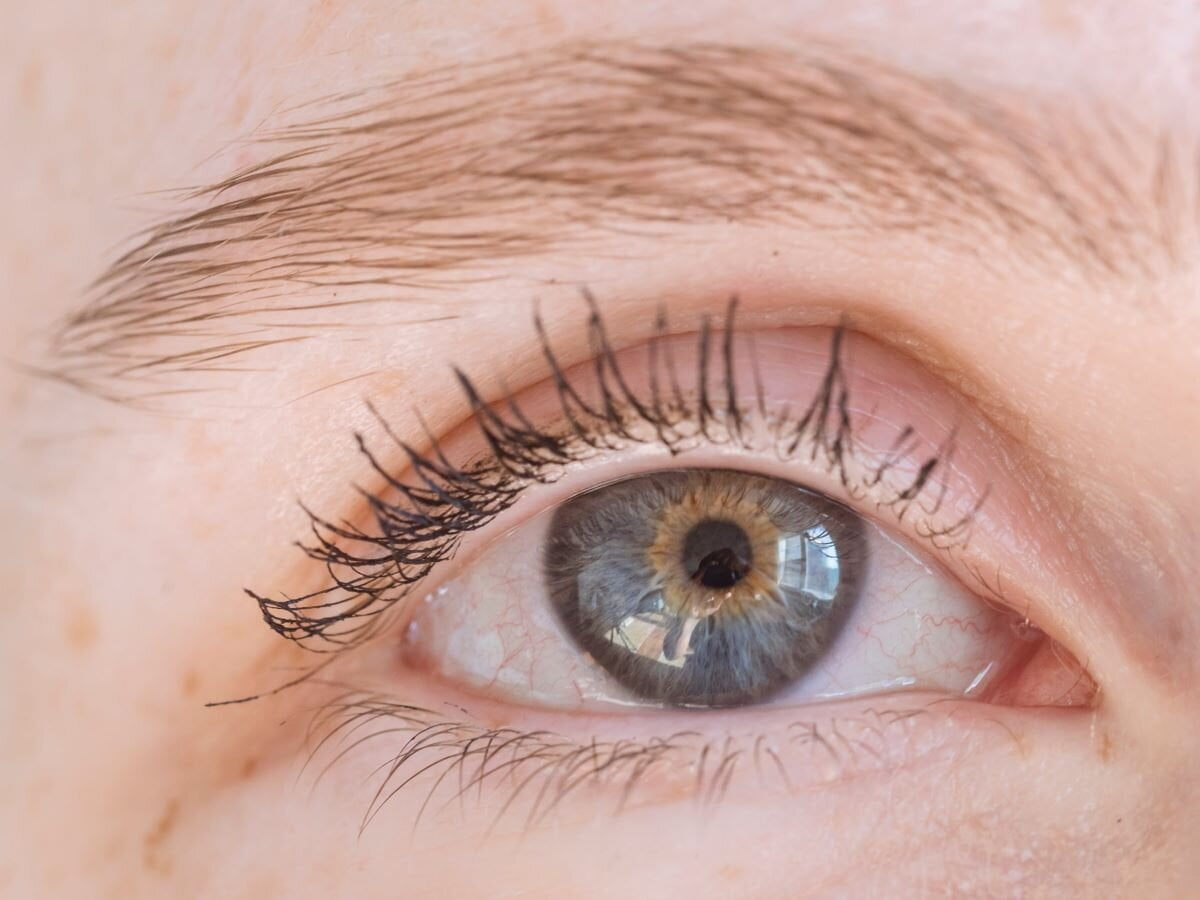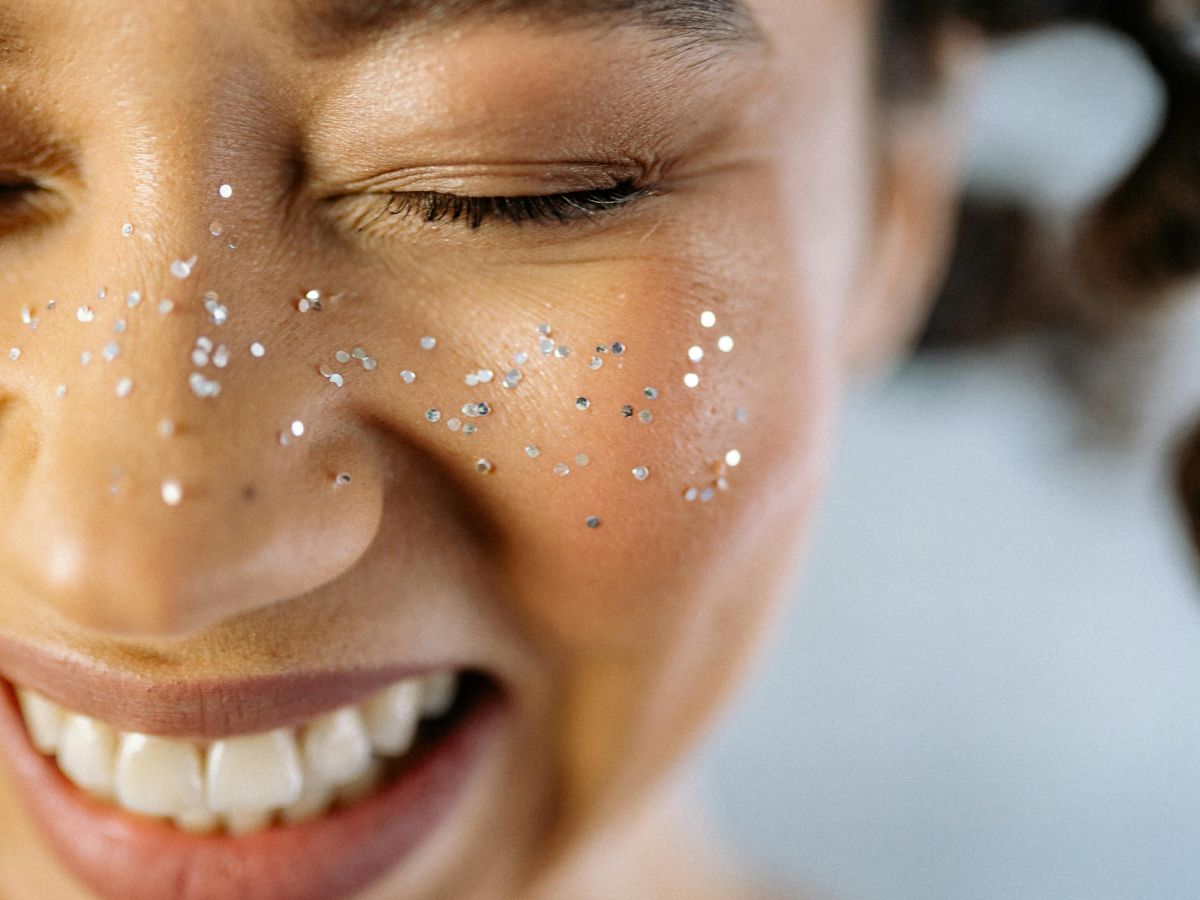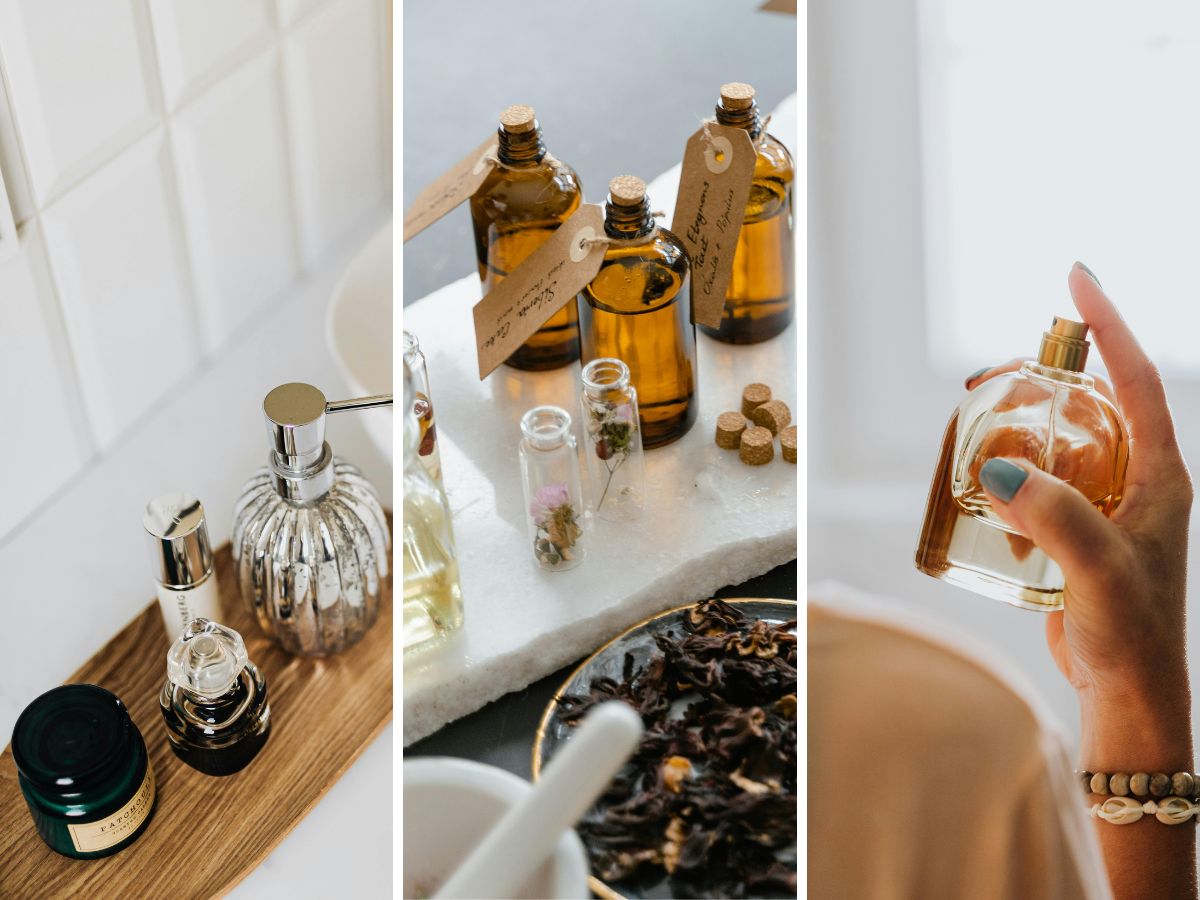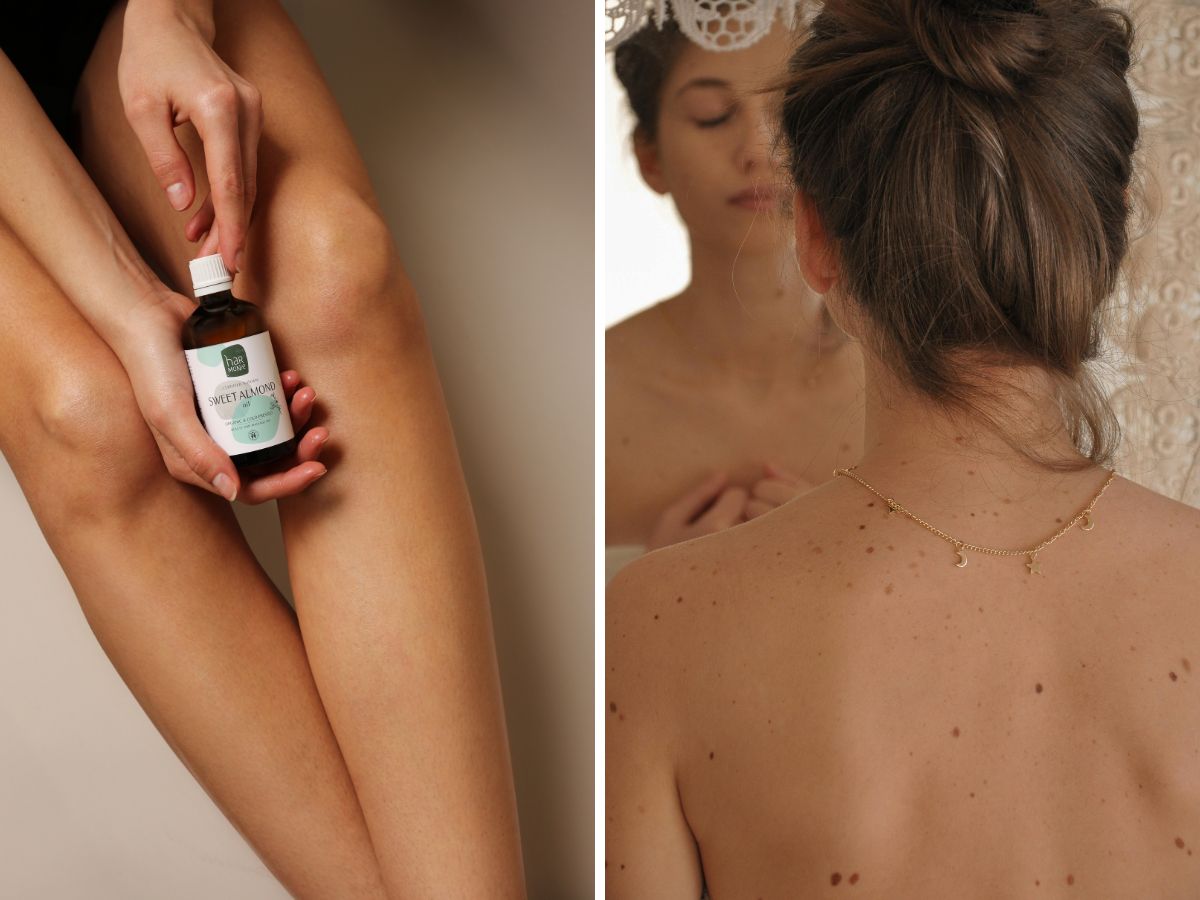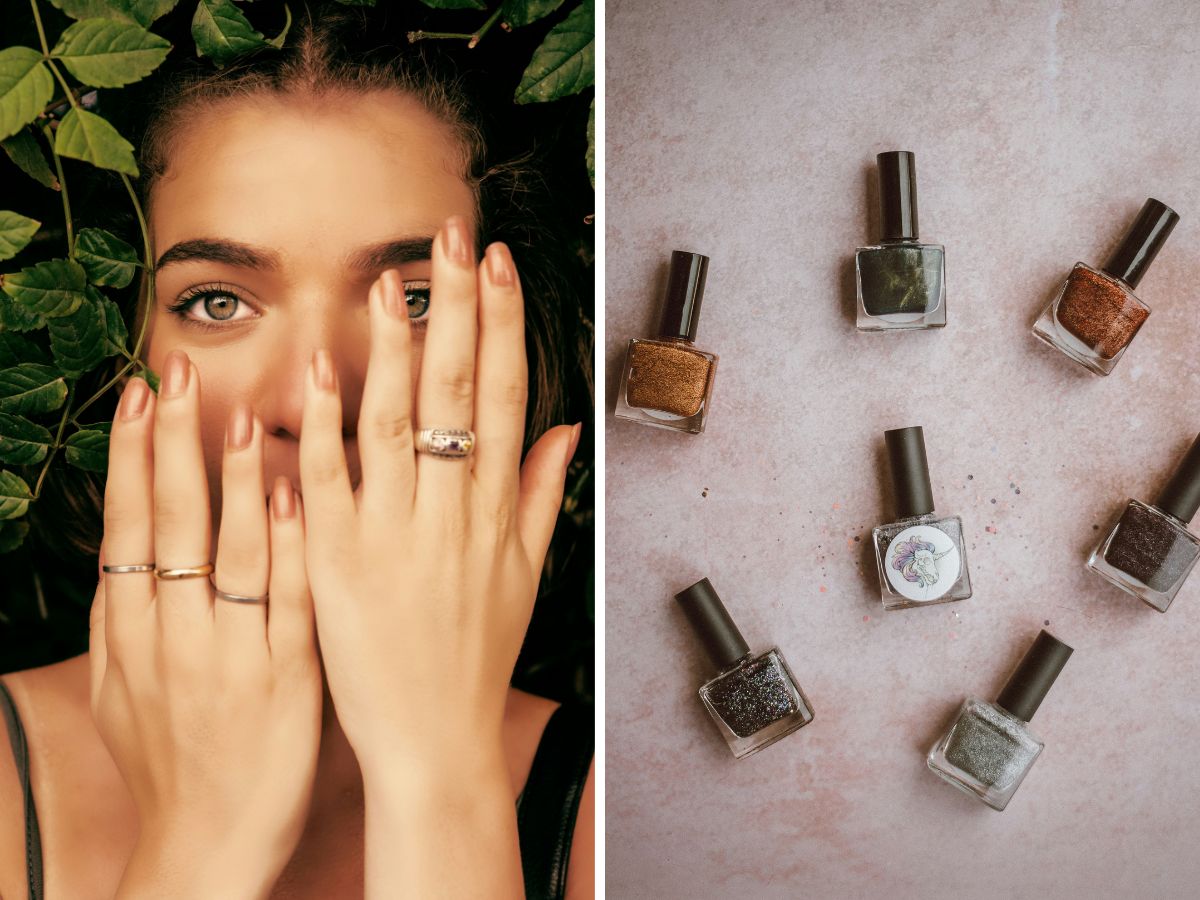Cleopatra was already wearing it, and it is still very popular: mascara! Even if you don't use much make-up; a lick of mascara instantly makes you look fresher. But what substances actually create those wonderfully long and voluminous lashes? Why does waterproof mascara last so well? And is long-lasting mascara just as good? We at thegreenlist.nl went to find out for you.
So most mascara is not that durable
For many women, mascara is indispensable in their beauty routine. As such, it is one of the most widely used make-up products. Like many other beauty products, mascara contains substances you would rather not have in your body or in nature, such as PFAS (really!), microplastics and parabens. Pooh, when I first read this I was quite shocked and wondered if it was such a good idea to apply my trusty waterproof mascara on my lashes every day. Fortunately, I found out that there are plenty of sustainable alternatives.
What's in mascara?
In ancient Egypt, women mixed animal fat with cabbage to then smear it on their eyelashes with bones. In this case, let's just be glad that the beauty industry has found better alternatives to this. Surely a tube with a brush like this is very handy and a lot less dirty.
Although modern mascara is hygienic and nice to use, it often contains substances you might prefer to avoid. I list some of these substances for you and give you tips later in the article on how you can easily check whether a mascara contains these substances without having to pick through that tricky ingredient list yourself.
Parabens in mascara
Parabens are chemical preservatives that make products last longer by preventing the growth of bacteria and fungi. Very nice in itself, but parabens are suspected of affecting coral and can disrupt our hormones. For one type of paraben, there is already scientific evidence that it can disrupt hormones, namely butylparaben. And yes, it is also used in some mascaras.
Microplastics in mascara
As with many other beauty products, many mascaras contain microplastics. Microplastics make the products spread well, but unfortunately they are not so good for nature and there are plenty of alternatives. Microplastics have already been found all over the world, even at the North Pole and in the human body. Since microplastics do not decompose, it is high time to make sure there are no more.
Mica in make-up
Then you have mica. Have you ever heard of mica? This shimmering mineral, which we previously wrote an article about, is found in super many products, including beauty products and thus mascara. Although mica is a natural mineral, it is often associated with child labour and poor working conditions. If you want to check the ingredient list of mascara with a handy app (more on this in a moment), mica is often not on the red list because it is a natural mineral. So if you want to be sure that mica is not in your mascara, in this case you will still have to look at the ingredients yourself.

PFAS, silicones and mineral oils in make-up
A few more ingredients found in mascaras that are not good for humans and the environment: PFAS, silicones and mineral oils. These synthetic - i.e. man-made - substances are often added to mascara to ensure longer lashes and to make mascara waterproof. Such waterproof mascara is of course super convenient, but not best for the environment and probably not for your health either.
Alternatives: is there sustainable mascara?
Let's start with the good news: more and more sustainable beauty brands are launching mascara. In fact, during my search for sustainable mascara, I found so many brands that I found it hard to choose. There is plenty on offer and plenty of reviews online. Because the term ‘natural’ doesn't always mean anything and because mascara ingredient lists are long and complicated, I have looked up a few resources that can quickly help you find more sustainable mascara.
Sustainable mascara: vegan and animal-free
Vegan or cruelty-free mascara sounds pretty sustainable right? Unfortunately, these terms do not mean everything. A vegan mascara contains no animal ingredients, in which case no animals were used in its production. Cruelty-free means animal-free, in which case there may still be animal products in your mascara. If you are vegan, it is important to take this into account as well. In that case, go for a mascara that is both vegan and cruelty-free. But animal testing is banned anyway, right? I hear you thinking.... True, but it is a bit more complicated.
In Europe, it is not allowed to sell cosmetics or personal care products tested on animals. But it could be that a beauty brand sells products here that are not tested on animals in Europe, but are outside Europe, for instance because legislation requires it. So that way, a beauty brand is still participating. To make it even more complicated, there are also a number of exceptions to European regulations which unfortunately still means that not all cosmetics sold in Europe are 100% animal-free. So in short, if you care about animal welfare, you would prefer a mascara that is vegan and cruelty-free. At animalrights.nl you will find a handy list of brands that are 100% animal-free and 100% vegan. Good vegan and cruelty-free labels can also help you.
What your vegan and cruelty-free does not tell you is what ingredients are in your mascara and whether they have been obtained in a sustainable way. A vegan and cruelty-free mascara can still be made from non-fine synthetic materials such as microplastics or from natural materials that have been subjected to very intensive farming. The best sustainable choice is a sustainable mascara whose ingredients have been obtained in an eco-friendly way, where no deforestation or intensive farming has taken place. Again, labels can help here.
Sustainable mascara: does the product have a label and what are the ingredients?
So just because a product has natural ingredients does not mean that these ingredients are sustainably sourced. Fortunately, there are labels that have strict rules that the product must comply with. For mascara, you can look out for the following labels, among others: Natrue, Ecocert, Cosmos (BDIH). Come across a label you don't know about or want to know more about a label? Take a look at the Label guide from Milieu Centraal.
There are also handy apps that help you identify harmful ingredients. I personally like the app INCI Beauty fine to use.


Like many other beauty products, mascara often contains microplastics. Fortunately, you can easily check this with Plastic Soup Foundation's Beat the Microbead app.
Sustainable mascara: free of microplastics
It is better for the environment and probably for your health to choose a mascara without microplastics. You can easily check whether a product contains microplastics with the free app Beat the Microbead. Tip: look up the mascara you have your eye on online and take a screenshot of the ingredients. That way, you can quickly and easily check the ingredients in the app.
Which mascaras are long-lasting?
Are there any mascaras at all that meet the above criteria? Yes there are. Some examples:
- Benecos - Natural Mascara Vegan Volume: vegan, animal-tested, microplastic-free, BDIH-labelled and budget-friendly too.
- Madara Cosmetics Mascara: vegan, animal-tested, mess-free, made on green electricity and COSMOS NATURAL certified.
- Inika - Long Lash Vegan Mascara: vegan, animal-tested, microplastic-free and COSMOS NATURAL certified.
- Veg-up - Frida Hermosa Mascara: vegan, animal-tested, microplastic-free and COSMOS ORGANIC certified.
- Dr Hauschka: Natrue certified, vegetarian and mess-free. Dr Hauschka is a wonderful anthroposophical brand that sources ingredients from biodynamic agriculture.
- PHB Ethical - Beauty Mesmerise Mascara: vegan, animal-tested and microplastic-free. Has no seal of approval, but is free of harmful substances according to INCI Beauty.
- Avril - Volume Mascara Black: this one is not vegan but is animal-tested, microplastic-free, budget-friendly and carries the Ecocert seal of approval.
Are you looking for better beauty brands for both make-up and daily care? We made a complete list earlier. Handy though, take advantage of it!
Is long-lasting mascara as good as ‘regular’ mascara?
For many skincare and beauty products, the sustainable variant is at least as good as the ’regular’ variant. From skin care to lipstick and from sunburn to nail polish: for these and also other products, we at thegreenlist.nl have found a good sustainable alternative that is at least as nice to use. Only in the case of mascara did the search take a bit longer. We often had the problem with long-lasting mascaras that they did not stay on well or clumped. While writing this article, I bought the mascara from PHB Ethical and with it I finally found a long-lasting mascara that does stay on my skin #nonspon. For a natural everyday look, I love this mascara. I have not yet tested Inika's mascara, but it is a favourite of many followers of thegreenlist.nl.


There can be harmful substances in mascara.
Keeping mascara longer
It is sustainable to last as long as possible with your stuff. The same goes for mascara, only in this case it is good to pay attention to the expiry date because your eyes are prone to bacteria. The expiry date of beauty products can be found on the packaging in the icon of a jar with a lid: the M stands for the number of months the product is still good after opening. For mascara, this is usually six months.
Is your mascara not expired yet, but has become hard or clumpy? Then you can liquefy it again by holding your mascara under the hot tap. A drop of eye make-up cleaner or lens solution will also work wonders.
Will you choose sustainable mascara from now on?
There are plenty of reasons to choose sustainable mascara. Waterproof mascara in particular is often full of substances that are not too good for people and the environment. In case you really can't do without waterproof mascara - I feel you - then you could at least try to use it more sparingly. I used to automatically put on waterproof mascara every day; now I only use it when I know I have to face a big shower or for a special occasion. And maybe, in the meantime, sustainable brands will manage to develop a good green mascara that we can cycle through the rain with. If you have any tips, please let us know! You can get in touch with thegreenlist.nl via the follow and contact buttons at the bottom of the page.
More sustainable tips from thegreenlist.nl
- You can read why packaging is usually not the biggest problem in this article on plastic packaging.
- Looking for tips on how best to store mascara and other beauty products? Then quickly read this article.
- Looking for long-lasting foundation or concealer? We figured that out for you too.
- Or wondering what's wrong with shampoo? Read all about it.
Sources: Niks Nieuws, from here, Dr Jetke Ultee, wherezitwarin.nl, Vogue, the Washington Post, it may well. Photo credits: Main image: Bru nO (Pixabay), blue mascara: Karolina Grabowska (Pexels), make-up: Jessica Johnston (Unsplash), bamboo mascara: Vie Studio (Pexels), white mascara: Bru nO (Pixabay).

